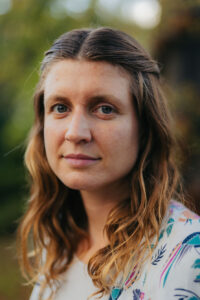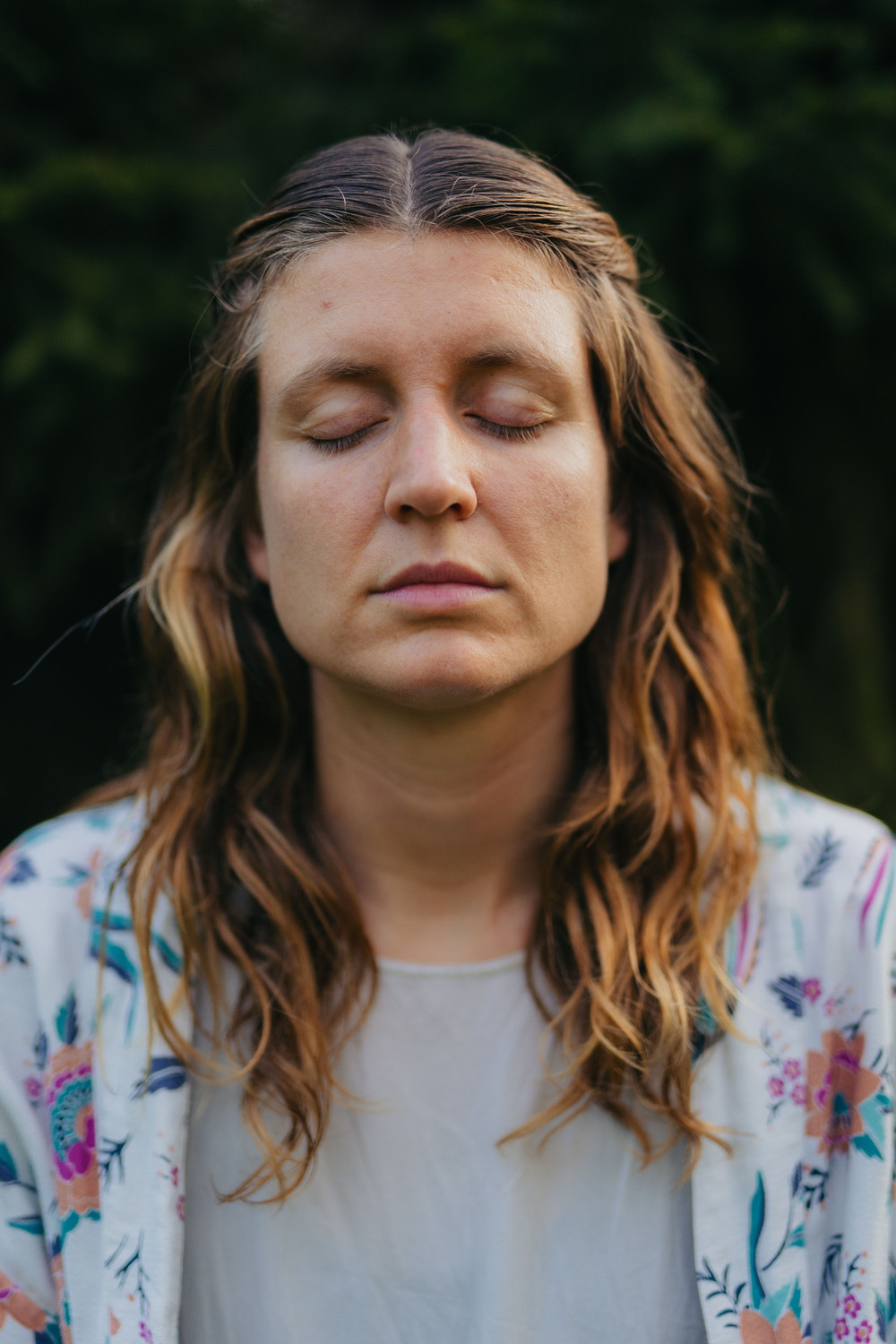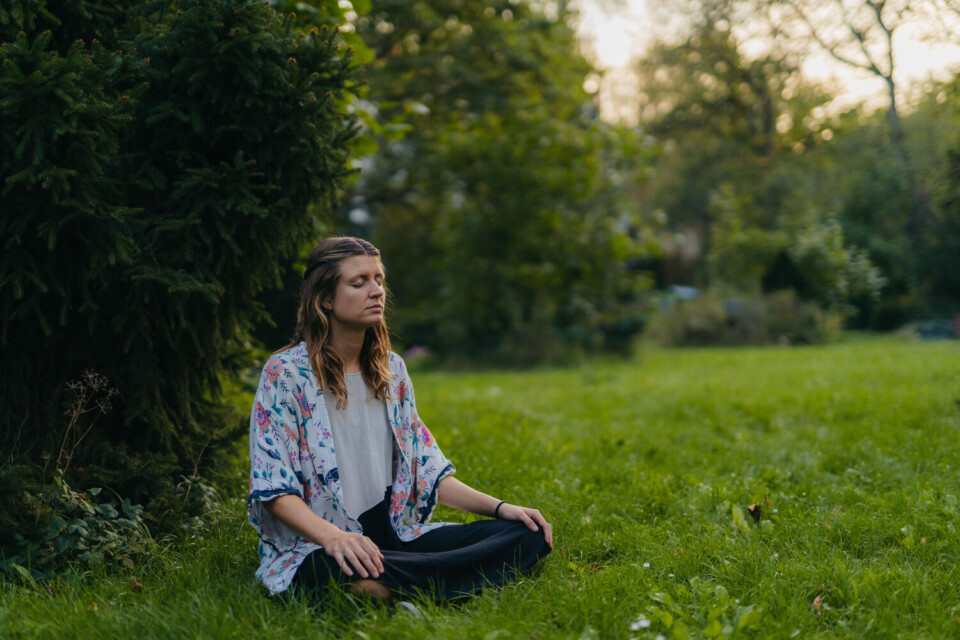K A T J A
Berlin | 2020

K A T J A
City — Berlin
Age — 31
Love life — Single
Profession — Founder of subcultours
Years in Berlin — 6
Location — Cemetery St. Jacobi-Friedhof
T H E B E R L I N S T O R I E S
‘SOMETIMES
I FEEL LIKE
I WILL NEVER
FIT IN’

- What makes you happy?
“Helping people grow and flourish. I want to show them that pushing yourself and taking more risks can lead to a more fulfilling life. I hope my own life serves as an inspiration, but I also try to help them by asking the right questions and inspiring them to take initiative. It’s human nature to complain, but I ask them what it is they do want instead. I try to help them take the first steps, because those are the hardest.
I also love challenging myself and doing things that are hard, like planting trees in Australia. With endurance, trust and empathy for myself, I eventually mastered it. When things get hard, you can feel overwhelmed and start wondering why you wanted to do something in the first place, but you learn a lot during the process. It makes you stronger and you grow, so in the end you feel content. It was very satisfying to see the result of my hard work, once this whole park came to life.”
- What is your best personality trait?
“My optimism. I see the good in everything, no matter how much I struggle or how hard it is. Helping someone comes naturally to me. For example, I never understood my brother, who is self-destructive, but I always wanted to help him. For many years, I tried to save him. I felt responsible for him. But he doesn’t want to be happy and I had to accept that. The only choice I had, was learning to deal with those constant thoughts about me wanting him to be happy. So being empathic is a good trait, but you need to know when to stop and take care of your own needs. For a month now, I’ve been going to psychotherapy every day – it’s really intense. I’m trying to deal with my past and childhood and I’m learning to pay attention to how I feel. It’s so important to check in with myself on a regular basis. During those moments, I’m trying to get out of my head – I tend to rationalise everything – and listen to the sensations I feel in my body.” ”
- What makes you different than other people?
“Maybe my curiosity for life. We have so little time and there is so much to explore. I’ve never been the kind of person who can stick to just one job or career. I want to learn new things and skills all the time, like coding. I love to start over from scratch. I don’t mind if that means taking a few steps back. I don’t need much, I’m content as long as I have the chance to develop myself and surround myself with interesting people. But most people don’t like change and choose comfort and financial security over curiosity and new challenges. The longer you stay in your bubble, the harder it is to take a step out of it. Luckily Berlin attracts more creative souls like me, who are eager to get out of their comfort zone. Sometimes when I ride my bicycle, I smile when I see such a mix of people. Some are on their longboards, others are dancing on their skates, some are playing with hula-hoops, or people are reading a book in an urban garden. It’s cool.”
- What is your biggest struggle?
“I’ve lived all over the world and now that I’m in Germany again, I’m struggling to keep doing my own thing. Family and friends apparently have a certain influence on me. They’re all doing things ‘the normal way’: holding a steady job; starting families. I’m trying to do what makes me happy, while loving them and accepting them for who they are. But it’s hard, because sometimes I feel that they’re holding me back with their judgmental talk. It makes me feel like I will never fit in. That’s why it’s super important to surround yourself with like-minded people as well.”
- What was your greatest life lesson? “That you need to make yourself happy before you can help others. You inspire others more by actions rather than words, so put in the work and change will follow. Another lesson is that sometimes you need to let go of relationships and friendships if you’re not mutually growing any longer. Everyone should feel free to move in their own direction. It’s very hard to let go of someone you love, even when you know it’s better for you. But we learn something from every person that we meet, that’s why our paths cross, right?”

- What is your biggest disappointment? “That because of my brother’s issues, I didn’t get enough attention from my parents when I was a kid. I always felt that I was responsible for him and I had to be nice to my parents so that they would feel happier. I never learned that I also had the right to listen to my own needs. My voice is at least as valuable as everybody else’s. I feel a lot of disappointment there and that’s what I’m going through right now with psychotherapy. It’s hard, because it’s opening old wounds and sometimes it feels like the floor is being ripped from underneath me, because I’m asking myself so many questions. But therapy is helping me understand why we behave in certain ways. I also feel disappointed about my master thesis at Nike. I worked my ass off for six months, I was the go-to person for a lot of people and was fully committed. I had proven myself, but when this job opening was there, my boss’s boss said, ‘No, sorry Kat, you’re too kind’. That was really hard to take in. It made me question my own nature. I felt that I was not allowed to be kind, that apparently, it’s not paying off if you want a career. She never explained to me what she meant exactly, maybe that I didn’t have any boundaries, because I was working all the time. But I was simply committed, because I really wanted to work for Nike. In the end their competitor, Adidas, offered me an amazing job in Dubai where I earned four times what I would have earned for Nike in Berlin. I made me realize that even in the corporate world there are people who appreciate you for being your kind self. But sometimes I think, maybe my boss at Nike already felt that I wasn’t cut out for that environment, because I didn’t end up staying with Adidas in Dubai either. After one year I left.”
- What makes you angry? “I don’t like entitled people. I hate people who look down from the top and have no idea what it’s like to work yourself up. All forms of ignorance anger me as well; racism, and people looking after their own interests, not realizing how privileged they are.”
- What is the best advice anyone ever gave you? “I feel very lucky that my father always told me to follow my heart instead of advising me to get a steady job and have a regular life. I’ve tried it and it didn’t work for me. He says that when you feel fulfilled from the inside, you’ll thrive and attract good things. I also feel inspired by Oprah Winfrey who gives really great advice in her podcasts.”
- What advice would you give to other women? “You can do anything you want and you can do it yourself, you’re strong enough. You have to put in the work though, nothing comes by itself or easily. If you have the determination, discipline and focus, anything is possible. But you’ve to make sacrifices… Don’t expect to become a world-famous yoga instructor if you’re not willing to take a meaningless side job to finance your Instagram marketing tools that will help achieve it. There is no easy path and no shortcut. You really have to live your goals.”
- What is your goal? “I want to live a fulfilling life, knowing that I did my best and became the best version of myself. I want to take the best possible care of others and myself. I would also love to make my project subcultours work and create a stronger voice for creative people and help them make money with their art. I came up with this idea in Costa Rica, where I was living to learn Spanish and surfing after I quit my corporate job. I was so inspired by all those creators I met when I was living in the capital San José. They were so kind and welcoming and had such an open heart, so I felt this calling to help and support them, so I started to organize tours. For example, during this tour you would visit a fashion designer and a barista, so people could learn different skills. It wasn’t very profitable, so I went back to Berlin to start an automized, solid platform for the tours in Costa Rica and I added Berlin, Dresden and the Portuguese city Porto.”
- What is your biggest sadness? “That’s also family-related. It’s unfair that some people are born with certain genetics that make them give up easier during tough times. But I do believe that people should be honest about it and ask for help. There is so much we could do if we’re more present in each other’s lives. It takes time to get to the bottom line and figure out what someone actually needs. But I believe it can help if your voice is being heard by others and you feel valued and respected.”
- What is your greatest fear? “That I’m not completely living life on my own terms and that I’m not connected to my soul’s purpose here. That I’m distracted to do something to please others or fulfill someone else’s expectation and I’m not following my inner calling.”
- What does Berlin mean to you? “It feels like home, probably because of its open-mindedness. Here you get the space to reinvent yourself over and over again and try things, because there are so many like-minded people. People in Berlin think freely, don’t judge and are doing their own thing. You don’t need to fit in, it’s okay to be different. A woman in Berlin could be a mom who is also taking care of the community garden or is doing freelance writing, or someone who has an office job but enjoys getting her arms tattooed just because she likes it. Especially after the fall of the wall in 1989 – when two very different areas with people with different mindsets and values came together – we had the opportunity to become whoever we wanted to become. There’s a lot of literal space in the city for creativity as well. The government even financially supports all foreigners that come here, it’s a form of social welfare money which many full-time artists live on. That makes Berlin attractive for people who want to reinvent themselves and is the reason this creative vibe still exists in Berlin. Although there is a tendency among creatives to move out of the city (or ‘the ring’ or ‘S-bahn’ as we call it), because it’s not so affordable anymore. But the city remains very diverse, which is why I fit in so well: whenever I get bored, I start all over again and learn something new.”
Photos by Luís Luz

